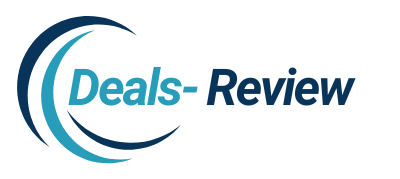Introduction: Why the Right Weight Loss Diet Matters
The quest for a weight loss diet has been around for decades, yet confusion persists. With countless programs promising miracle results—low-carb, keto, paleo, vegan—it’s hard to know what really works. The truth is, there is no one-size-fits-all solution. Instead, the best plan is one that fuels your body, supports your lifestyle, and helps you lose fat without sacrificing long-term health.
This article explores the foundations of an effective eating plan, busts myths, and shares practical strategies to create a sustainable approach to fat loss.
Understanding the Basics of a Weight Loss Diet
At its core, every weight loss diet relies on the principle of energy balance. You must burn more calories than you consume. However, quality matters as much as quantity:
- Nutrient Density: Whole foods provide vitamins, minerals, and fiber that support health.
- Macronutrient Balance: Protein, carbs, and fats all play essential roles.
- Satiety: Foods that keep you full reduce the temptation to overeat.

Popular Types of Weight Loss Diets
There are many approaches, each with its benefits and drawbacks:
- Low-Carb Diets (Keto, Atkins): Focus on reducing carbs and increasing fat/protein.
- Low-Fat Diets: Restrict fat intake while emphasizing carbs and lean protein.
- Mediterranean Diet: Balanced eating with olive oil, fish, nuts, and vegetables.
- Plant-Based Diets: Prioritize vegetables, fruits, legumes, and whole grains.
- Intermittent Fasting: Restricts eating to specific time windows.
Each method can work if it creates a calorie deficit, but long-term success depends on sustainability.
The Role of Protein in a Weight Loss Diet
Protein is the cornerstone of any effective plan:
- Preserves lean muscle while losing fat.
- Increases satiety, reducing cravings.
- Boosts metabolism through the thermic effect of food.
Good sources include chicken, fish, beans, eggs, tofu, and Greek yogurt.
Carbohydrates: Friend or Foe?
Carbs have an unfair reputation in the weight loss diet world. The truth:
- Whole grains, fruits, and vegetables provide fiber and nutrients.
- Complex carbs digest slowly, keeping blood sugar stable.
- The real problem is refined carbs like white bread, pastries, and sugary drinks.
Choosing the right carbs fuels workouts and prevents energy crashes.
The Importance of Healthy Fats
Fats are essential for hormones, brain function, and energy. In moderation, they enhance satiety and flavor. Sources like avocados, nuts, seeds, olive oil, and fatty fish support both health and weight control.
Building a Practical Weight Loss Diet Plan
To make your diet sustainable:
- Plan Meals Ahead: Prevent last-minute unhealthy choices.
- Control Portions: Use smaller plates and be mindful of serving sizes.
- Eat More Fiber: Vegetables, fruits, and legumes keep you fuller longer.
- Stay Hydrated: Thirst is often mistaken for hunger.
- Allow Flexibility: Include occasional treats to avoid feelings of restriction.
Sample One-Day Weight Loss Diet Plan
- Breakfast: Oatmeal with berries, chia seeds, and almond butter.
- Snack: Greek yogurt with walnuts.
- Lunch: Grilled chicken salad with olive oil vinaigrette.
- Snack: Apple with peanut butter.
- Dinner: Salmon, quinoa, and steamed vegetables.
- Dessert (optional): Dark chocolate square.
This balance of protein, healthy fats, and complex carbs fuels energy while promoting fat loss.
Lifestyle Habits to Support Your Diet
A weight loss diet is most effective when paired with:
- Consistent Exercise: Strength training plus cardio.
- Quality Sleep: Reduces cravings and stabilizes hormones.
- Stress Management: Prevents emotional eating.
- Mindful Eating: Slows down meals to avoid overeating.
Myths About the Weight Loss Diet
- Skipping meals speeds fat loss. In reality, it can slow metabolism.
- All carbs make you fat. Whole carbs are essential for energy.
- You must cut out all treats. Balance and moderation work better long term.
- Eating late at night causes weight gain. Total calorie intake matters more.
Real-Life Success Story
Samantha, a 32-year-old teacher, had tried countless fad diets. When she shifted to a balanced weight loss diet focusing on protein, whole foods, and portion control, she lost 35 pounds in a year. More importantly, she gained energy, improved her sleep, and no longer felt trapped by food rules.

Advanced Strategies for Maximizing Results
For those who want to refine their approach:
- Meal Timing: Eating more calories earlier in the day may improve satiety.
- Carb Cycling: Adjusting carb intake based on activity levels.
- High-Volume Eating: Focusing on foods like soups, salads, and fruits that are low-calorie but filling.
- Elimination of Liquid Calories: Cutting sugary drinks, even juices, makes a big impact.
Common Challenges and How to Overcome Them
- Plateaus: Adjust calorie intake or increase activity.
- Cravings: Plan healthy alternatives and allow controlled indulgences.
- Social Pressure: Learn to navigate parties by choosing smaller portions.
- Time Constraints: Meal prep on weekends saves time during the week.
Conclusion: Finding Your Perfect Weight Loss Diet
There’s no universal formula for success. The best weight loss diet is one that you can stick to, that nourishes your body, and that fits your life. The goal isn’t temporary restriction—it’s building habits that support lasting change.
By focusing on whole foods, balanced nutrition, and flexible strategies, you can create a diet that not only leads to weight loss but also enhances your energy, confidence, and overall well-being.

